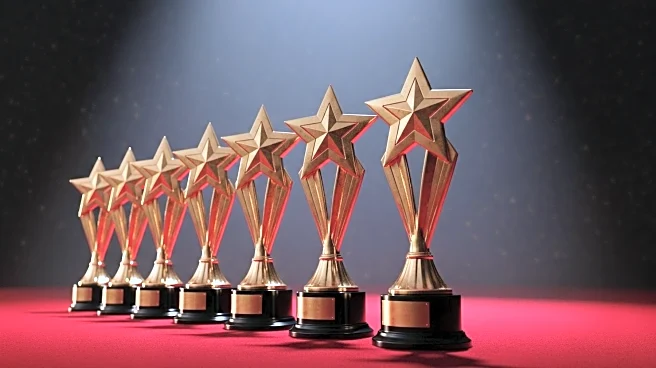What is the story about?
What's Happening?
Over 400 celebrities, including Jennifer Aniston, Meryl Streep, and Tom Hanks, have signed an open letter organized by the ACLU in support of Jimmy Kimmel. This action follows the indefinite suspension of Kimmel's late-night show by ABC, which was prompted by backlash from comments he made regarding Charlie Kirk's suspected killer. The situation escalated when Brendan Carr, an FCC appointee by President Trump, publicly threatened Disney/ABC, leading to several local affiliates ceasing to air Kimmel's show. The ACLU letter condemns government threats to freedom of speech, emphasizing the importance of protecting artistic and journalistic expression.
Why It's Important?
The suspension of Jimmy Kimmel's show and the subsequent celebrity support highlight ongoing tensions between media freedom and government influence. This incident underscores concerns about potential government overreach in silencing dissenting voices, which could have broader implications for freedom of speech in the U.S. The involvement of high-profile celebrities brings significant attention to the issue, potentially influencing public opinion and policy discussions. The situation also raises questions about the role of media companies in navigating political pressures while maintaining editorial independence.
What's Next?
Jimmy Kimmel and his legal team are reportedly in discussions with Disney executives to resolve the situation, though no agreement has been reached. The outcome of these negotiations could set a precedent for how media companies handle government criticism and influence. Additionally, the widespread celebrity support may prompt further public discourse on the balance between government authority and free speech rights, potentially leading to legislative or policy changes aimed at safeguarding media independence.
Beyond the Headlines
The controversy surrounding Jimmy Kimmel's show reflects broader societal debates about the limits of free speech and the role of government in regulating media content. It also highlights the potential risks faced by artists and journalists in expressing controversial opinions. The incident may encourage more public figures to advocate for stronger protections against government retaliation, fostering a cultural shift towards prioritizing freedom of expression as a fundamental democratic value.














